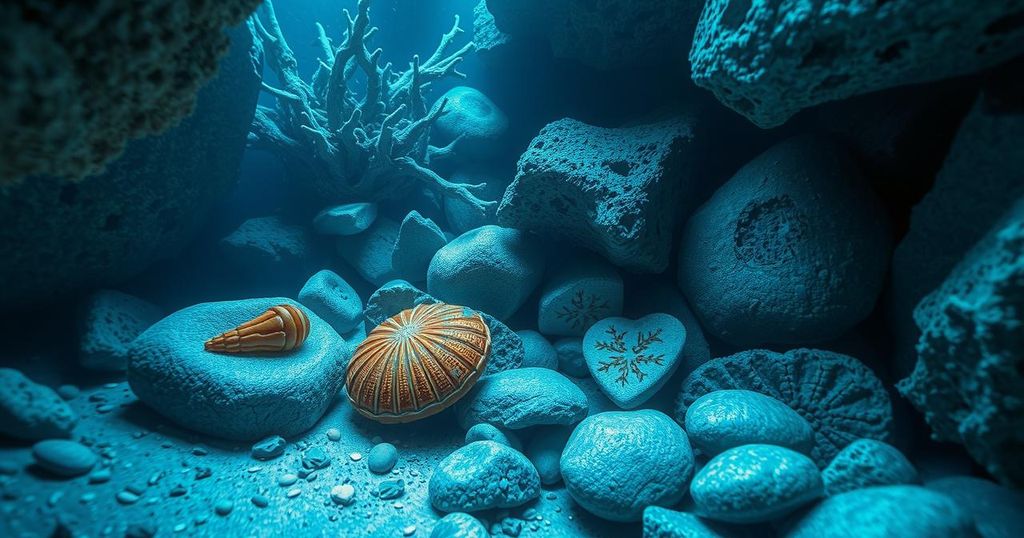Ancient Ancestor of Great White Shark Discovered in Peru

A 9-million-year-old shark fossil, believed to be a precursor to the great white shark, was unveiled in Peru. Found in the Pisco basin, it showcased excellent fossilization and contained sardine remains in its stomach. The fossil’s significant size and rarity highlight its importance in understanding marine ecosystems.
Researchers in Peru recently unveiled a nearly complete fossil of an ancient shark species, Cosmopolitodus hastalis, estimated to be 9 million years old. This shark, believed to be an ancestor of the modern great white shark, once lived in the southern Pacific Ocean and was known to prey on sardines. Fossils of this lineage were discovered approximately 235 km (146 miles) south of Lima in the Pisco basin, a region renowned for its rich marine fossil history.
The remarkable fossilization of the shark’s remains includes extensive teeth measuring up to 8.9 cm (3.5 inches) and a potential length of nearly seven meters, comparable to a small boat. As outlined by Cesar Augusto Chacaltana from the Peruvian Geological and Mining Institute (INGEMMET), the preservation quality of these remains is exceptional compared to other fossil finds.
Presentations featured the ancient shark remains displayed in glass urns, including a prominent jaw containing sharp teeth. Notably, paleontologist Mario Urbina emphasized the rarity of complete shark fossils globally. Research also revealed sardine remains within the shark’s stomach, indicating a diet composed largely of these fish, as anchovies were not present during that era.
Peru has yielded significant paleontological discoveries, including the fossils of a young crocodile from over 10 million years ago and the largest known river dolphin skull, both highlights of its geological history. Such findings reinforce the country’s status as a vital site for ancient marine species research, contributing insights into evolutionary history and prehistoric ecosystems.
The discovery of the Cosmopolitodus hastalis fossil is significant as it offers insights into the evolution of shark species, particularly the great white shark. Sharks have existed for roughly 450 million years, with their evolutionary history intertwined with the changing marine environments. The Pisco basin, a key site in Peru, has been instrumental in uncovering several fossilized remains of ancient marine life, showcasing the diversity of prehistoric predators and their ecological roles.
The revelation of the 9-million-year-old shark fossil provides a window into the evolutionary past of sharks, revealing dietary habits and physical characteristics. This find not only enhances the understanding of marine biodiversity from millions of years ago but also underscores Peru’s geological wealth. Such discoveries are crucial for paleontologists in reconstructing the Earth’s biological history and environmental changes over millennia.
Original Source: www.indiatoday.in







